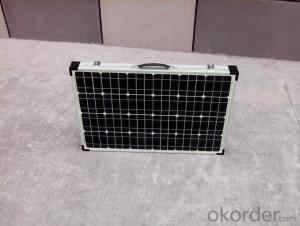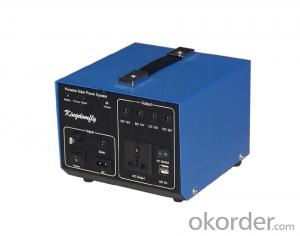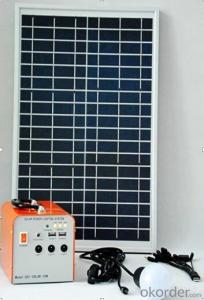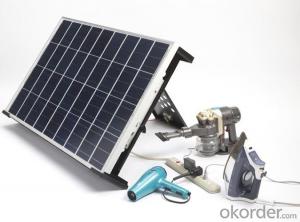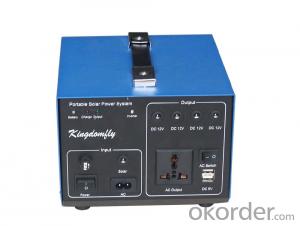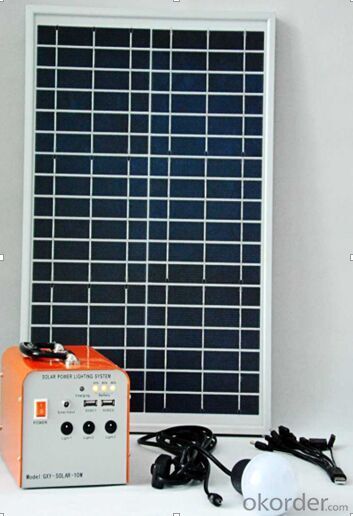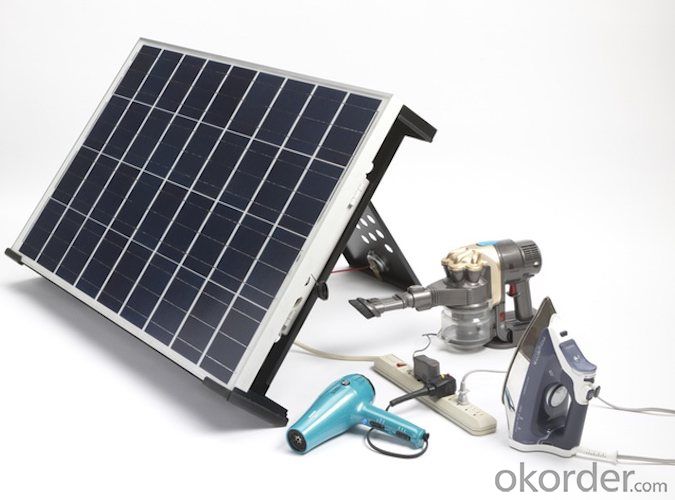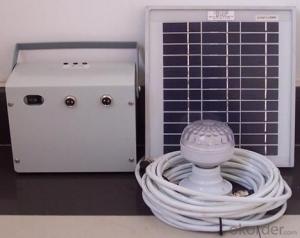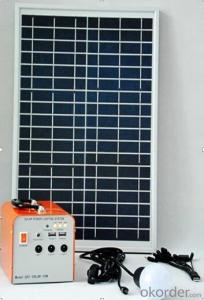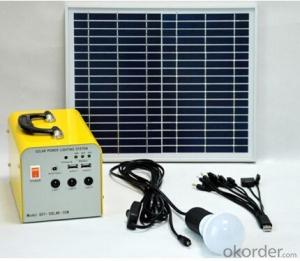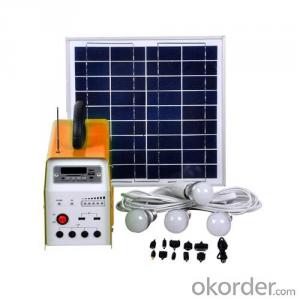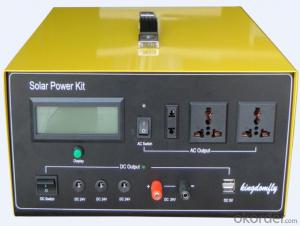Solar Energy Systems Indiana - Solar Portable System AN-S20W
- Loading Port:
- Shanghai
- Payment Terms:
- TT OR LC
- Min Order Qty:
- 0 set
- Supply Capability:
- 10000 set/month
OKorder Service Pledge
OKorder Financial Service
You Might Also Like
Specification
Description of Solar Portable System AN-S20W
Compatible portable solar power supply, also called solar mobile power, it includes: solar panel, charge controller, discharge controller, electric charge controller, inverter, outside enlarge capacity interface and battery, etc. Photovoltaic portable power supply can work in solar energy and ordinary power two modes, and can automatically switch. Photovoltaic portable power supply is used widely is the emergency relief, tourism, army, geological prospecting, archaeology, schools, hospitals, Banks, gas stations, comprehensive building, highway, substation, family camping or outdoor activities such as emergency power ideal power supply equipment.
Specifications of Solar Portable System AN-S20W
1. Solar Panel: 20W 18V
2. Battery: 12V12AH lead-acid battery
Input terminal: 1 DC input, 9V
Output terminal: 4 output terminals, including:
1x USB output, 5V 1A;
3x DC outputs, 6V 1A
Switch: one square On/Off general switch
Indication lamp: 2 pcs; Red one is for charging indication, Green one is for operating indication.
Accessories of Solar Portable System AN-S20W
1. 2pcs 3W led bulbs;
2. 1pc 3m connection wire between solar panel and cabinet;
3. 2pcs lamp holder with 3m wire;
4. 1pc AC charger
Technical Data of Solar Portable System AN-S20W
| Internal Package Size (cm) | 26*16.5*21 |
| Packing QTY | 4 |
| External Package Size (cm) | 30*47*43.5 |
IMages of Solar Portable System AN-S20W
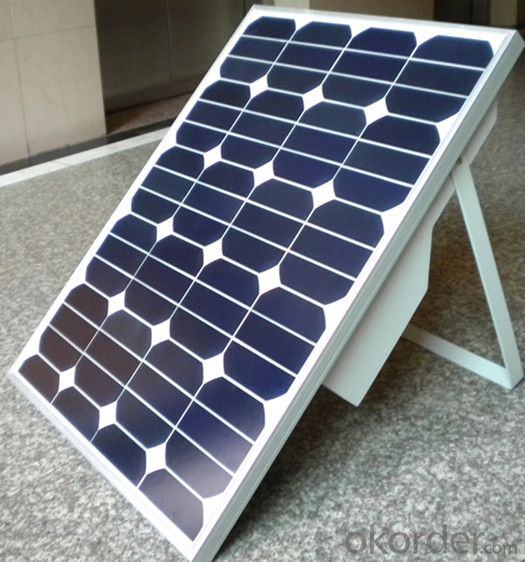
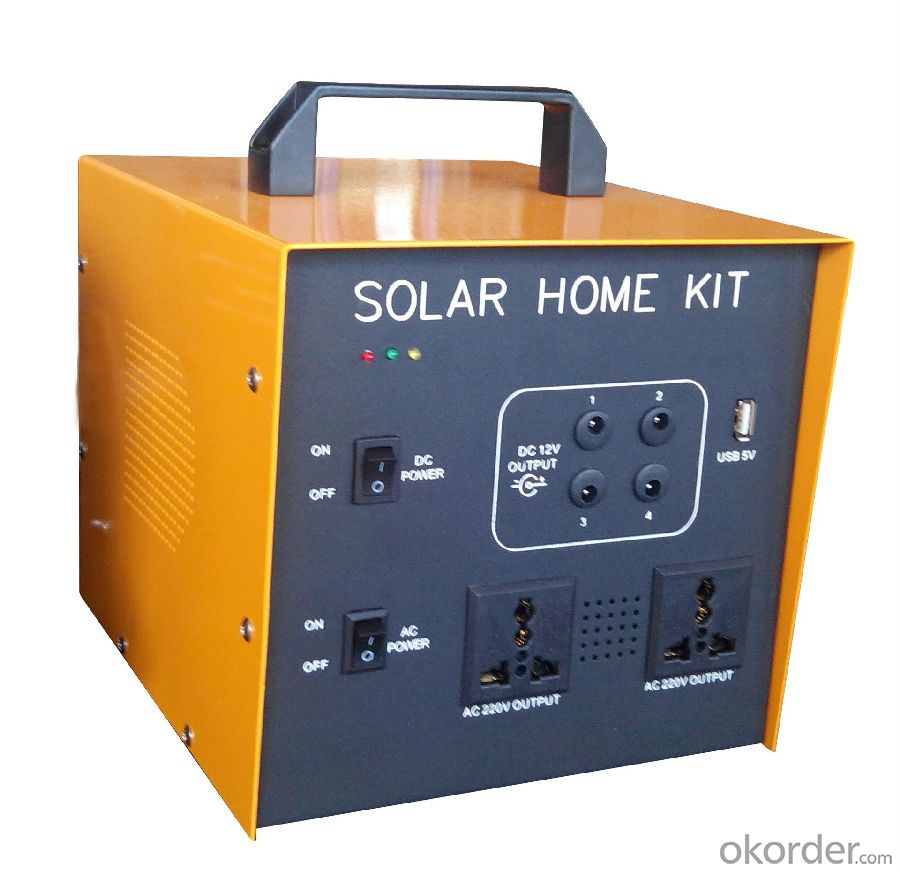
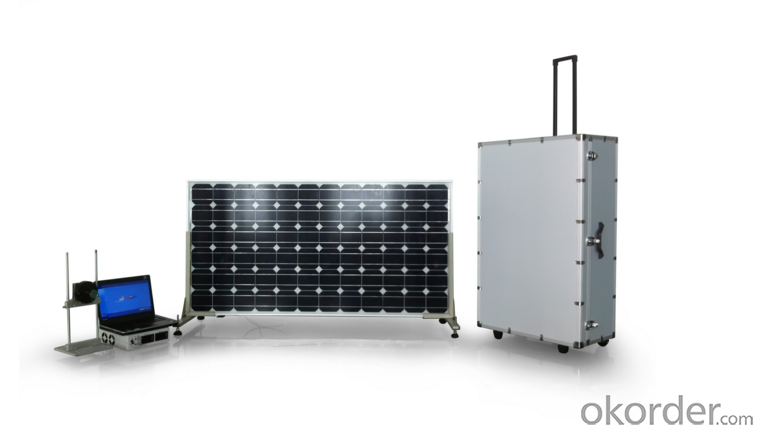
FAQ:
1. How long will my inquiry get response?
Your inquiry related to our products or prices will be replied within 24 hours.
2. Can I get professional service and suggestion?
Well-trained and experienced staffs to answer all your questions in fluent English.
3. Do you accept OEM or customized design?
OEM & ODM, any your customized lightings we can help you to design and put into product.
4. What if I need specific design?
Distributorship are offered for your unique design and some our current models.
- Q: Can solar energy systems be used in areas with limited access to solar energy advocacy groups?
- Yes, solar energy systems can still be used in areas with limited access to solar energy advocacy groups. While advocacy groups can provide support and resources, the installation and use of solar energy systems do not necessarily depend on their presence. With proper research and consultation with experts, individuals and communities can independently implement solar energy systems and reap the benefits of clean and sustainable energy.
- Q: Are there any environmental benefits of solar energy systems?
- Yes, there are numerous environmental benefits of solar energy systems. Firstly, solar energy is a clean and renewable energy source, meaning it does not emit greenhouse gases or other harmful pollutants into the atmosphere. This helps to reduce air pollution and combat climate change, as solar power generates electricity without any carbon emissions. Moreover, solar energy systems require minimal water usage compared to other traditional forms of energy generation, such as coal or natural gas power plants. This is particularly important in regions facing water scarcity or droughts, as solar power helps to conserve water resources. Additionally, solar energy systems help to reduce reliance on fossil fuels, which are finite resources and contribute to the depletion of natural resources. By generating electricity from sunlight, solar power reduces the need for extracting and burning fossil fuels, conserving these valuable resources for future generations. Furthermore, solar energy systems can be installed on rooftops or in open areas, minimizing the need for large-scale land clearance or habitat destruction. This helps to protect ecosystems and preserve biodiversity. Overall, solar energy systems offer significant environmental benefits by reducing greenhouse gas emissions, conserving water resources, minimizing reliance on fossil fuels, and preserving ecosystems. By transitioning to solar power, we can contribute to a cleaner, more sustainable future for our planet.
- Q: Can solar panels be used to power agricultural irrigation systems?
- Yes, solar panels can be used to power agricultural irrigation systems. Solar energy can be converted into electricity, which can then be used to power pumps and other irrigation equipment. This sustainable and renewable energy source offers a cost-effective and environmentally friendly solution for powering irrigation systems in remote and off-grid areas.
- Q: Can solar energy systems be used to heat water?
- Yes, solar energy systems can be used to heat water through the use of solar thermal collectors or solar water heaters. These systems absorb sunlight and convert it into heat, which is then used to warm the water for various purposes such as domestic use, swimming pools, or even industrial processes.
- Q: Can solar energy systems be used in remote areas without access to the grid?
- Yes, solar energy systems can be used in remote areas without access to the grid. Solar panels can generate electricity by harnessing sunlight, which can then be stored in batteries for use when the sun is not available. This makes solar energy systems a reliable and sustainable solution for powering remote areas that are off the grid.
- Q: Can a solar energy system be installed on a historic building?
- Installing a solar energy system on a historic building is indeed possible, but it necessitates careful consideration and planning to avoid compromising the building's integrity or aesthetic appeal. Preservation laws and regulations often safeguard historic buildings, which can impose limitations on visible modifications. In such instances, solar panels can be strategically placed on the less conspicuous sides or at the rear of the building, or even incorporated into existing structures like roofs or awnings to minimize their visual impact. Collaboration with preservation experts and architects is essential in designing the solar system to ensure it harmonizes with the building's historic character. By undertaking proper planning and execution, a solar energy system can successfully blend into a historic building, simultaneously reducing its carbon footprint and preserving its architectural charm.
- Q: Can solar energy systems be used in commercial buildings?
- Yes, solar energy systems can definitely be used in commercial buildings. In fact, they are increasingly being adopted by businesses worldwide as a sustainable and cost-effective solution for meeting their energy needs. Solar panels can be installed on the rooftops or facades of commercial buildings, harnessing the power of the sun to generate electricity. This clean and renewable energy source not only helps reduce greenhouse gas emissions but also provides long-term energy savings for businesses.
- Q: Are there any maintenance costs associated with solar energy systems?
- Solar energy systems come with maintenance costs. Although solar panels require minimal maintenance compared to other energy systems, there are still expenses involved. These include regularly cleaning the panels for optimal efficiency, inspecting and repairing any damaged or malfunctioning components, and occasionally replacing worn-out parts. Moreover, monitoring and maintaining batteries or inverters that store and convert energy may be necessary. It is also advisable to have a professional conduct an annual inspection to ensure proper functioning. While these maintenance costs are generally low compared to the savings generated from solar energy, it is essential to consider them when analyzing the overall installation cost.
- Q: Are there any fire safety concerns associated with solar energy systems?
- Yes, there are fire safety concerns associated with solar energy systems. While solar panels themselves do not generally cause fires, issues can arise with the electrical components of the system, such as faulty wiring, improper installation, or inadequate maintenance. Additionally, firefighters may face challenges in fighting fires involving solar panels due to the risk of electrocution and the inability to easily disconnect the system from the electrical grid. Proper installation, regular inspections, and adherence to safety guidelines can help mitigate these concerns.
- Q: Can solar energy systems be used for heating and cooling purposes?
- Yes, solar energy systems can be used for heating and cooling purposes. Solar thermal systems can use the sun's energy to heat water or air, which can then be used for space heating or to supply hot water. Additionally, solar-powered air conditioning systems, such as solar cooling systems or absorption chillers, can use solar energy to cool buildings.
Send your message to us
Solar Energy Systems Indiana - Solar Portable System AN-S20W
- Loading Port:
- Shanghai
- Payment Terms:
- TT OR LC
- Min Order Qty:
- 0 set
- Supply Capability:
- 10000 set/month
OKorder Service Pledge
OKorder Financial Service
Similar products
Hot products
Hot Searches
Related keywords
